White Rock is a film of genre Documentary directed by Tony Maylam with James Coburn
White Rock (1977)
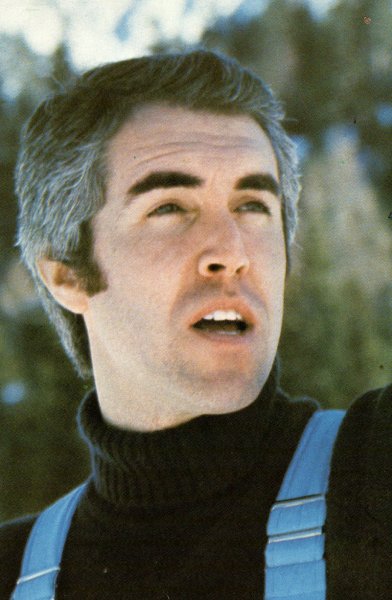
If you like this film, let us know!
White Rock is a 1977 documentary film about the 1976 Winter Olympics held in Innsbruck, Austria. The narrator was James Coburn.
The film was directed by Tony Maylam, who at around the same time had also made a concert film featuring the rock group Genesis, Genesis: In Concert. The two films were shown as a double bill in British cinemas in 1977.
A soundtrack, "White Rock" was done by Rick Wakeman in 1977.
The Weinstein Brothers' independent film company Miramax Films produced the film.
Actors

James Coburn
(James Coburn)
Comments
Leave comment :
Suggestions of similar film to White Rock
There are 69 films with the same actors, 6 films with the same director, 8966 with the same cinematographic genres, 4182 films with the same themes (including 21 films with the same 3 themes than White Rock), to have finally 70 suggestions of similar films.If you liked White Rock, you will probably like those similar films :

Hero (1986)
, 1h26Directed by Tony Maylam
Origin United-kingdom
Genres Documentary
Themes Sports films, Documentary films about sports, Association football films
Actors Michael Caine
Rating79%






The Olympics in Mexico (1969)
, 4hDirected by Alberto Isaac
Genres Documentary
Themes Sports films, Documentary films about sports, Films about the Olympic Games
Rating69%





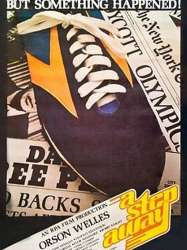
A Step Away (1980)
, 2h20Genres Documentary
Themes Sports films, Documentary films about sports, Films about the Olympic Games
Actors Orson Welles, Carlos Montalbán
Rating69%





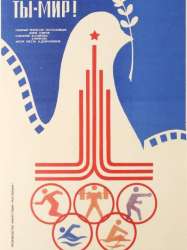
O Sport, You Are Peace! (1981)
, 2hDirected by Fyodor Khitruk, Youri Ozerov
Genres Documentary, Animation
Themes Sports films, Documentary films about sports, Films about the Olympic Games
Rating66%






Stade 81 (1981)
, 14minutesDirected by Jaco Van Dormael
Genres Documentary
Themes Sports films, Documentary films about sports, Films about the Olympic Games
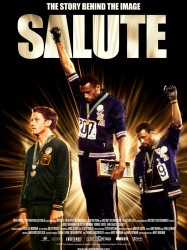
Salute (2008)
Directed by Matt Norman
Genres Documentary
Themes Sports films, Documentary films about sports, Films about the Olympic Games, Documentary films about historical events
Rating75%





The film provides an insight into an incident at the 1968 Summer Olympics which saw two United States athletes, Tommie Smith and John Carlos, give the black power salute from the victory dais after the 200 metres final. The film focuses on the third man on the dias, silver medal winner Peter Norman, who showed his support for Smith and Carlos by donning an "Olympic Project for Human Rights" (OPHR) badge on his way to the podium. It was also Norman who suggested to Smith and Carlos that they share the black gloves used in their salute, after Carlos had left his gloves in the Olympic Village. This is the reason for Smith raising his right fist, while Carlos raised his left. Asked later about his support of Smith and Carlos' cause by the world's press, Norman said he opposed his country's government's White Australia policy.

The Grand Olympics (1961)
, 2h22Directed by Romolo Marcellini
Genres Documentary
Themes Sports films, Documentary films about sports, Films about the Olympic Games
Actors Bing Crosby
Rating67%





142 minutes of the film speak of events and athletes that have characterized the 1960 Summer Olympics in Rome. From the absolute protagonist Wilma Rudolph, called the black gazelle, to Livio Berruti, the first white to win the 200 meters, to the deeds of Ethiopian marathon runner Abebe Bikila, who won the marathon racing barefoot.
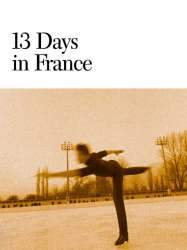
13 Days in France (1968)
Directed by Claude Lelouch, François Reichenbach, Guy Gilles
Origin France
Genres Documentary, Historical
Themes Sports films, Documentary films about sports, Films about the Olympic Games
Actors Dalida, Johnny Hallyday
Rating66%





Documentaire sur les Jeux Olympiques de Grenoble de 1968. Plus qu'aux compétitions sportives (ski, bobsleigh, hockey), le film s'intéresse aux à-côtés qui entourent toute manifestation.

Olympia 52 (1952)
Directed by Chris Marker
Origin France
Genres Documentary
Themes Sports films, Documentary films about sports, Films about the Olympic Games
Rating67%





Le film Olympia 52 peut être considéré comme un documentaire. il s'agit d'une commande de la Direction Générale de la Jeunesse et des Sports. Le film de Chris Marker s'attache à montrer ce que le public présent dans les tribunes peut voir du déroulement des épreuves olympiques. On y retrouve donc les images des compétitions mais aussi des scènes de préparation des athlètes. Cela donne un rythme particulier au film avec une alternance de "temps forts" et de "temps faibles". On peut également observer de nombreux plans de coupes montrant le public dans les tribunes. Ce dernier point est né d'une contrainte imposée par le comité olympique pour le tournage des films amateurs depuis les gradins. Chris Marker en a fait un parti pris qui donne au film une autre vision du sport plus centrée sur ceux qui le regardent que ceux qui le pratiquent.
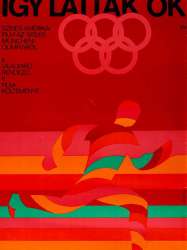
Visions of Eight (1973)
, 1h50Directed by Miloš Forman, John Schlesinger, Claude Lelouch, Arthur Penn, Kon Ichikawa, Mai Zetterling, Michael Pfleghar, Youri Ozerov
Origin USA
Genres Documentary
Themes Sports films, Documentary films about sports, Films about the Olympic Games
Actors Miloš Forman, Kon Ichikawa, Claude Lelouch, Arthur Penn, Youri Ozerov, John Schlesinger
Rating67%





 Connection
Connection